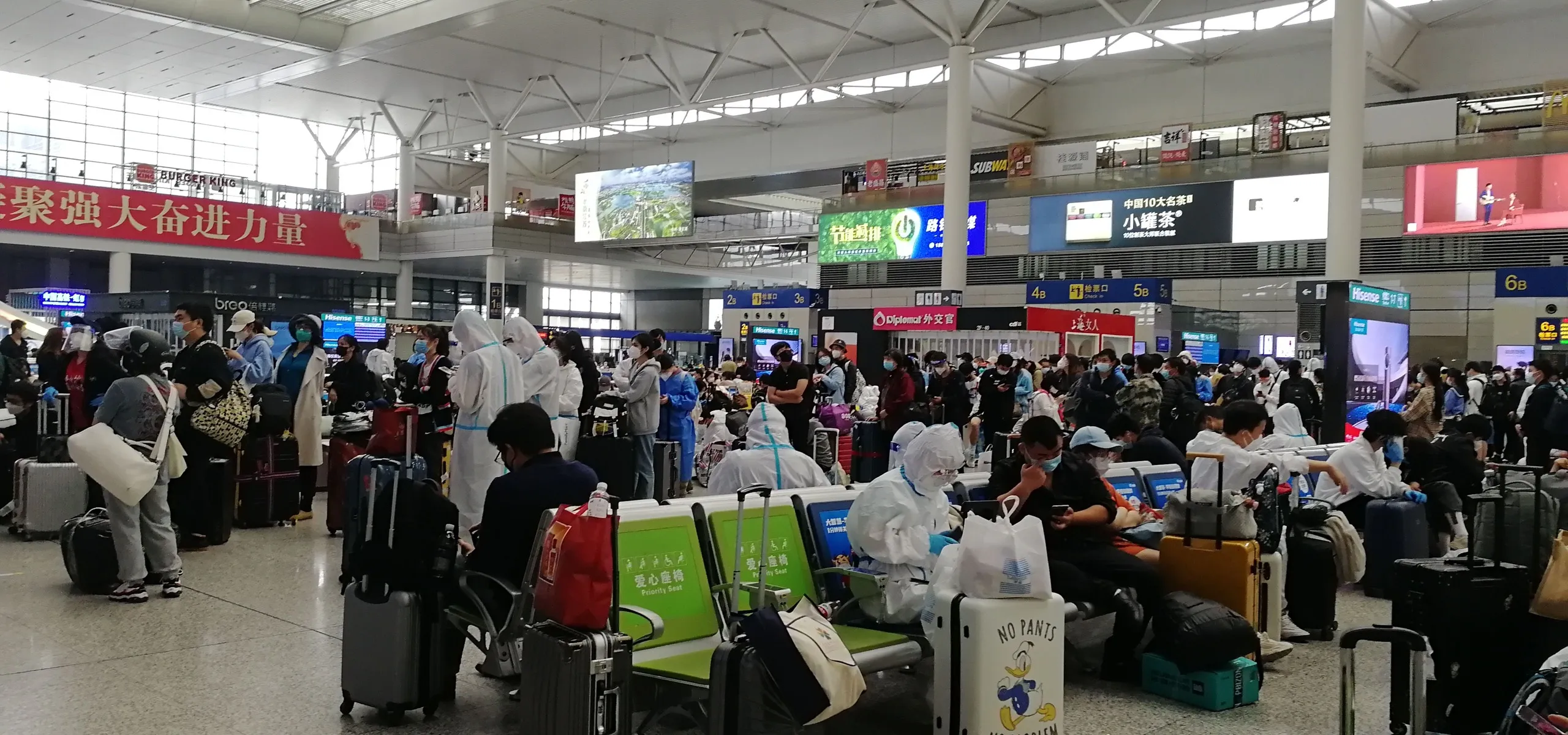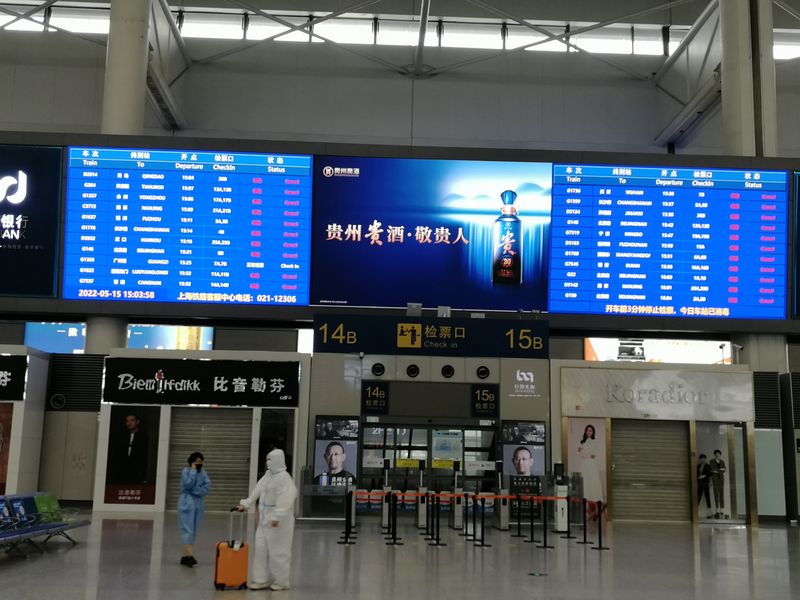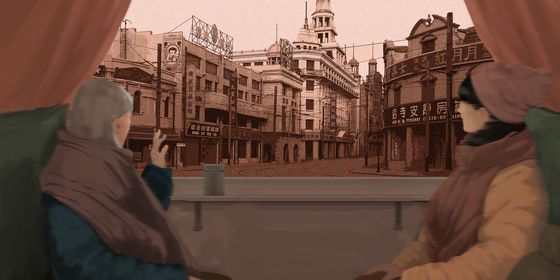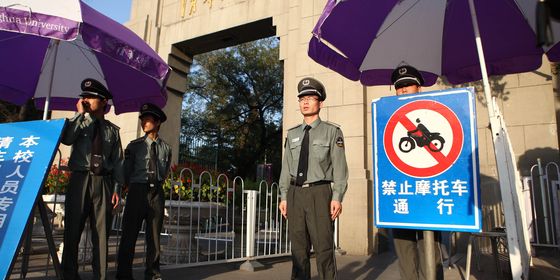Departing Shanghai for their hometowns or other cities, many young people are rethinking their life plans after exiting lockdown
Lu Xinran can feel a gluttonous craving for coke, chips, beer, and coffee—the so-called “luxury” foods and beverages that were scarcest in supply during Shanghai’s lockdown in the past two months—even though it has been over two weeks since he left the city.
The freelance curator in his 20s, who originally hailed from Shenzhen, is one of thousands of people whom the media has reported leaving Shanghai since mid-May, as travel restrictions slowly relaxed and the city’s recent outbreak of Covid-19 came under control. Many people from out of town, especially, have been eager to return to their hometowns after two months or longer in lockdown.
But even those who’ve navigated the labyrinthine steps of buying tickets, getting transportation to the train stations, obtaining required tests, and completing quarantines on arrival have nursed emotional scars from the past two months, which have greatly altered their lifestyles and plans for the future.
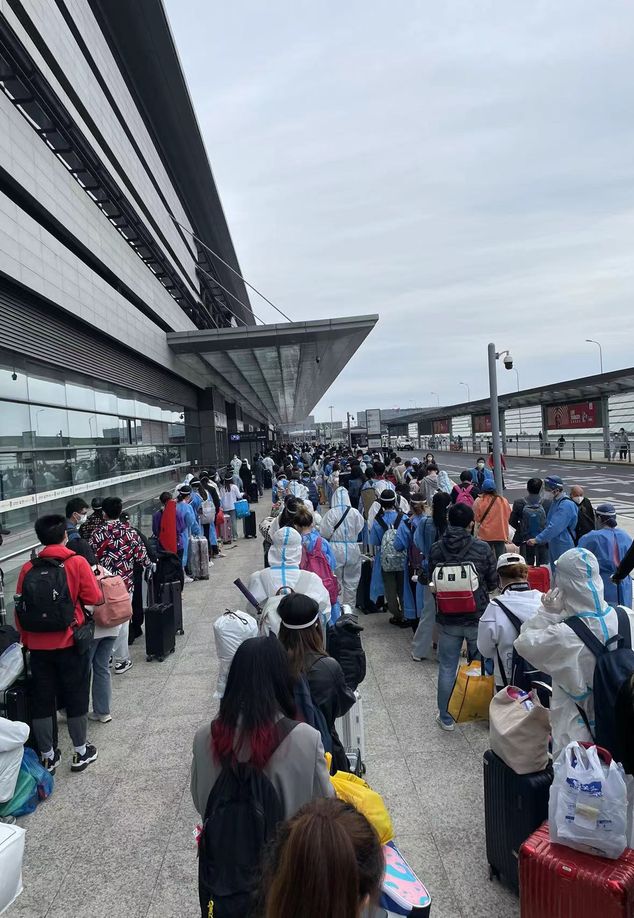
Lu and other passengers queue to enter Hongqiao Station and catch trains out of Shanghai (Lu Xinran)
Xie Lihong, a 28-year-old who works in an internet company, has returned to her hometown Zhanjiang in southeastern China’s Guangdong province. She tells TWOC that she now drinks two cups of milk tea with extra sugar every day—when she never used to touch the beverage—and still craves high-calorie foods such as hamburgers. This contrasts with the early spring of 2020, when Xie had also experienced lockdown-like conditions in Shanghai, but used that time to exercise regularly and eat healthy foods at home.
In 2022, however, she describes her overall feeling as “insecure.” “Every day [under lockdown], I was in a nervous mood. I couldn’t muster up the spirit to exercise and instead started to crave junk foods,” she says.
During the lockdown, with most of Shanghai’s 25 million residents confined to their residential compounds with little opportunity to venture out, and most businesses shut down, many experienced difficulty getting basic food supplies at affordable prices, while “luxury” food items like snacks and drinks were practically unheard of, unless they bartered with their neighbors. “Going to eat McDonald’s is like a New Year’s celebration for us now,” Lu quips.
He thinks his new addiction to junk food is also rooted in feelings of scarcity and anxiety in the past two months. “I can feel that, biologically and mentally, I haven’t fully detached from Shanghai yet. I still need time and ways to release the pressure that I accumulated in the past two months.”
Lu lived in the New Pudong Area, one of the districts hardest hit by the recent outbreak and the earliest to lock down. Lu’s residential compound was sealed in on March 11, more than two weeks before an official city-wide lockdown starting from April 1. He describes the experience as highly stressful. “It was not a normal state. Every day I woke up, I was getting nucleic acid tests, fighting over food on apps, tracking my group buying order, and arguing with volunteers in my neighborhood about their excessive control over our food deliveries.”
Even now, Lu says that his sleep quality is still poor and he has bad dreams from time to time, from which he wakes up covered in sweat. He also tells TWOC that one day when he was at home, he heard a loudspeaker in his neighborhood playing an anti-fraud announcement, and his body went rigid for a moment, as he thought it was an announcement for a nucleic acid test.
Seeking opportunities
But for Lu, the lack of food and emotional stress of quarantine were not the most important factors behind his decision to leave—rather, it was the job opportunities. Lu had worked as a freelancer in Shanghai for two years, and before the lockdown, he had been in talks to work on publishing projects with several art museums and agencies. “Since the lockdown started, none of these organizations has ever talked about these projects. I tried contacting a museum, but one of their employees told me that his residential compound continued to have confirmed cases, and that was the end of our conversation,” says Lu.
Meanwhile, he continued paying 3,000 yuan (448 US dollars) a month for rent, and his food expenses doubled during lockdown, reaching nearly 4,000 yuan (600 US dollars) per month.
According to Shanghai’s census in 2020, about 10.47 million out of the city’s 25 million residents are long-term migrants, accounting for 42.1 percent of the Shanghai population. According to the state-run newspaper Health Times, at least 10,000 passengers left Shanghai by train every day starting from mid-May, many of them from neighboring provinces like Jiangsu, Zhejiang, and Jiangxi, as well as southeastern coastal provinces like Guangdong and Fujian.
In early May, an organization in Chengdu happened to get in touch with Lu and send him a job invitation. This became the motivation for Lu to leave the stressful memories in Shanghai behind and try to resume his life.
Like Lu, Liang Shan, a 23-year-old college student majoring in advertising, who is graduating in June, left the city for economic reasons. While in Shanghai, she had not been able to leave her campus since March. On April 22, after a positive case was found in her dormitory building, Liang and two roommates were confined to their dorm room and could only leave one at a time to use the bathrooms or fetch water, reporting to volunteers via WeChat every time they did so. “The first night was a total mess. I was running out of drinking water and we didn’t get any food until 9 p.m...I was really frightened at that time,” she recalls.
On the same day that her dormitory was sealed, Liang had attended an online job interview with an advertising firm in Guangzhou, but could not name an exact date when she could arrive in Guangzhou and start the job. By the time she finally snapped up a train ticket and obtained permission from her university to leave on May 17, the position had been filled. Worried about job opportunities in Shanghai’s post-lockdown economy, she decided to leave anyway, in case she missed more openings in other cities.
Lu left Shanghai on May 15 and headed to the city of Foshan, a city of 9 million people in Guangdong where his family owns an apartment. He chose the city for its looser travel restrictions: Arrivals from Shanghai are required to undergo seven days of centralized quarantine, plus seven additional days of health monitoring at home, during which they are allowed to go out and shop for necessities from time to time. “I was ecstatic that I could easily go downstairs and get a bunch of scallions for only 2 yuan,” says Lu, saying he had to pay 50 yuan for it in Shanghai.
A new start?
Many who have left Shanghai will soon need to decide whether their departure is temporary or permanent. On June 1, Shanghai officially reopened, with people celebrating by documenting their experiences of returning to work—or just strolling down the Bund at night. Lu had finished his home-monitoring two days earlier, and he may need to return to the city to cancel his lease and retrieve his belongings.
However, he is clear that he won’t make the trip or return to Shanghai permanently unless he could be sure he could leave again and travel to other cities without restrictions. He tells TWOC that one night during the lockdown, he dreamed of his grandmother, who lives in Guangdong and once had a stroke. In some Chinese beliefs, dreaming of loved ones, especially those of old age, is a sign that the loved one’s health has taken a turn for the worse. Although Lu’s grandmother turned out to be fine, he has heard of other people who lost family members before they could return home. “I am worried that if I return to Shanghai and if something happens to my family, I can’t be there in time,” said Lu.
Xie has made up her mind to leave Shanghai for good. She had moved to Shanghai in 2016 after graduating from university in Wuhan, and has called the city home for six years. She told TWOC that she once thought that Shanghai was the most livable city in China. “The city accepts different kinds of people. The atmosphere is quite liberal and you can experience various cultures here,” she says.
However, she says her impressions have been reversed after a fierce quarrel with her neighborhood committee, which leaked her personal information on WeChat and caused her neighbors to ostracize her as a non-local, and even called the police and her landlord, after she disagreed with what she thought were excessive nucleic acid test requirements.
When Xie first left on May 17 (five days later than planned, due to not being able to get a negative test result in time), she had only asked for extended leave from work to see her critically ill father, and had not thought of moving away permanently. But the journey back to Guangdong changed her mind. “When I arrived in Guangdong, I thought, ‘The food prices and house prices here are so friendly,’ and the people too,” she recalls, contrasting it with the stress of the last two months. She tells TWOC that she was planning to resign, and will be looking for a job in her own province in the future.
Now, Lu, Xie, and Liang have all finished their 14-day quarantine. Lu plans to meet his friends and return to his hometown to see his grandmother, while Xie wants to take her mother to Yunnan for a long holiday. Liang has also settled in Guangzhou. Five days after she left Shanghai, she received a call from the advertising company she had interviewed with, and learned they had another opening. She accepted their offer without hesitation.
She believes the last two months have greatly changed her outlook on life. Coming to Shanghai from a small city in Fujian province, Liang had immediately been attracted by the fashionable metropolis. She liked its culture of strivers, who try to pursue their passions to the highest standard. “I identified with these values. For the last four years, I have never thought that I would leave Shanghai,” said Liang. “[But] now I now feel a kind of PTSD. I guess I need a long time to heal.”
Before she starts her career in Guangzhou, she wants to do one more thing—eat hot pot. She had promised her friends back in Shanghai they would eat it together once the lockdown was lifted.
(Lu Xinran, Xie Lihong, and Liang Shan are pseudonyms)





